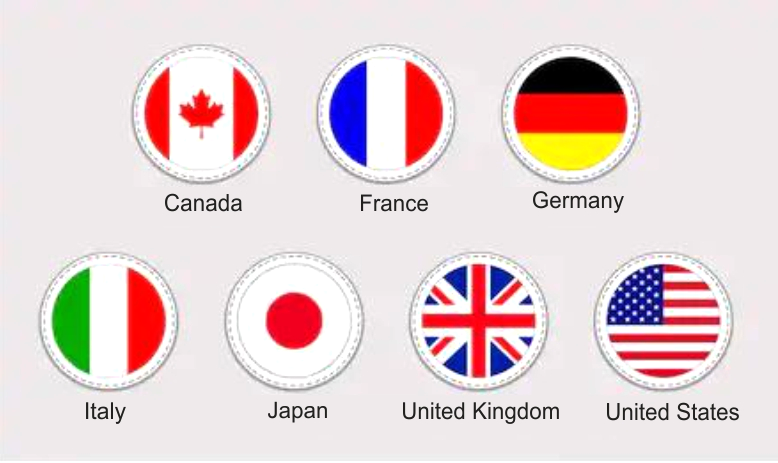47th G7 Summit | 18 Jan 2021
Why in News
The United Kingdom has invited Indian Prime Minister as a guest to attend the 47th G7 summit that is scheduled to be held in June 2021.
Key Points
- Other Guest Countries:
- Apart from India, Australia and South Korea are also invited to participate in the proceedings of the summit as “guest countries”.
- UK, India & G7:
- The UK was the first P5 member to support a permanent UN Security Council seat for India and the first G7 member to invite India to a G7 Summit in 2005.
- The proposed summit will be the first in-person G-7 summit in almost two years.
- Objective:
- Unite leading democracies to help the world build back better from the coronavirus and create a greener, more prosperous future.
Group of Seven (G-7)
- About:
- It is an intergovernmental organisation that was formed in 1975.
- The bloc meets annually to discuss issues of common interest like global economic governance, international security and energy policy.
- The G-7 does not have a formal constitution or a fixed headquarters. The decisions taken by leaders during annual summits are non-binding.
- Members:
- G-7 is a bloc of industrialized democracies i.e. France, Germany, Italy, the United Kingdom, Japan, the United States, and Canada.
- The G7 was known as the ‘G8’ for several years after the original seven were joined by Russia in 1997.
- The Group returned to being called G7 after Russia was expelled as a member in 2014 following the latter’s annexation of the Crimea region of Ukraine
- Summit Participation:
- Summits are held annually and hosted on a rotation basis by the group's members.
- The groundwork for the summit, including matters to be discussed and follow-up meetings, is done by the “sherpas”, who are generally personal representatives or members of diplomatic staff such as ambassadors.
- The leaders of important international organizations like European Union, IMF, World Bank and the United Nations are also invited.
- Challenges and Concerns:
- Policies:
- Internally the G7 has a number of disagreements, e.g. clash of the USA with other members over taxes on imports and action on climate change.
- The organisation has also been criticised for not reflecting the current state of global politics or economics.
- Not Representative:
- There are no G7 members from Africa, Latin America or the southern hemisphere.
- It is also facing a challenge from fast-growing emerging economies, like India and Brazil are not members of the G7.
- However, G-20 was formed in 1999, in response to a felt need to bring more countries on board to address global economic concerns.
- Policies:
- India and G-7
- Previous Participation:
- The participation of India at the 45th summit in Biarritz, France, in August 2019 is a reflection of deepening strategic partnership and recognition of India as a major economic power.
- India was also invited for the 2020 summit hosted by the USA which could not take place due to the pandemic.
- Previously India had attended the G-8 summit (it became G-7 from G-8 with the expulsion of Russia in 2014) five times between 2005 and 2009.
- Important Platform for Deliberations:
- India’s ability to safeguard its core sovereign concerns such as trade, Kashmir issue and India’s relations with Russia and Iran can be discussed with G7 members.
- Taking on Global Stage:
- India raised issues on climate change and at meetings which signaled India’s growing willingness to lead on issues that are points of contention for countries like China and the USA.
- Significance of India at G7:
- As current president of Brazil-Russia-India-China-South Africa (BRICS) and G20 president in 2023, India will play a key role driving in multilateral cooperation helping to build back better around the world.
- Previous Participation:

